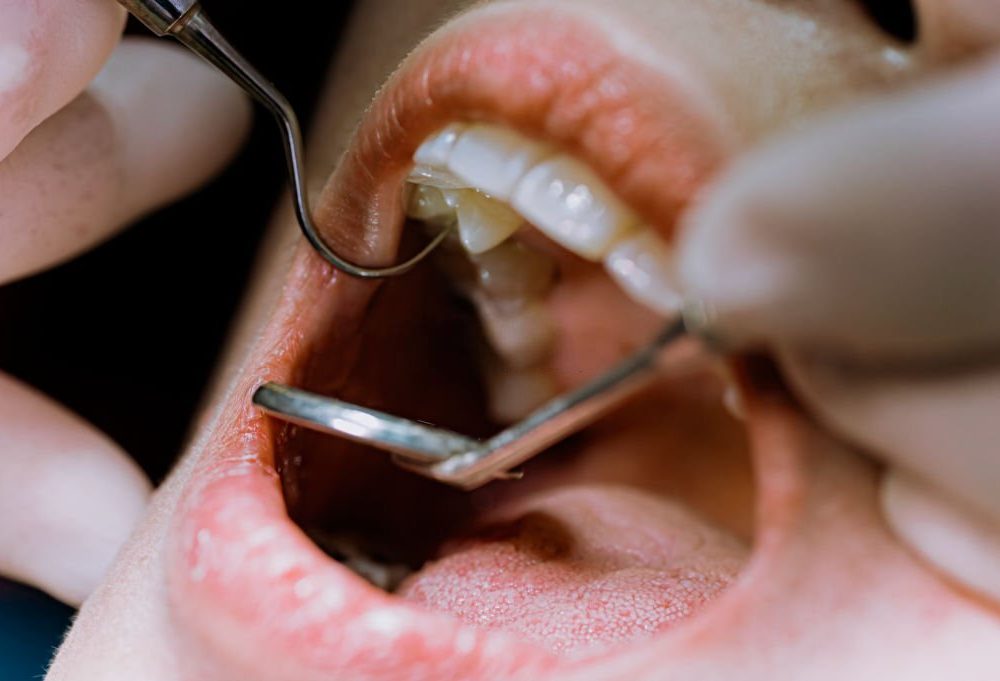
Root canal treatment is a dental procedure to repair and save a tooth that is badly decayed or infected. While it is a relatively common procedure, it can be painful and expensive. Fortunately, there are steps you can take to avoid the need for a root canal. In this article, we will explore some tips and techniques for maintaining good oral health and preventing the need for a root canal. We will also discuss the signs and symptoms of a root canal and what to do if you experience them. Following these tips can help ensure that your teeth remain healthy and strong for years.
What is A Root Canal?
A root canal is a dental procedure to repair and save a tooth that is badly decayed or infected. The process involves removing the damaged or infected pulp (the soft tissue inside the tooth) and cleaning and disinfecting the inside of the tooth. Once the pulp is removed, the dentist will fill and seal the inside of the tooth with a rubber-like material, and a crown or filling may be placed on top to restore the tooth’s shape and function.
Root canal treatment is usually performed under local anesthesia and may require multiple visits to complete, depending on the extent of the damage or infection. While the procedure has a reputation for being painful, modern techniques and anesthesia make it relatively comfortable for most patients. If left untreated, a badly decayed or infected tooth can cause pain and swelling and even lead to tooth loss.
Tips For Avoiding Root Canals

There are several tips you can follow to avoid the need for a root canal:
- Brush and floss regularly: One of the most important things you can do to avoid a root canal is to maintain good oral hygiene. Brush your teeth twice a day for at least two minutes each time, and floss at least once a day. This will help remove plaque and bacteria from your teeth and gums, which can lead to decay and infection.
- Limit Sugary Foods And Drinks: Sugary foods and drinks can contribute to the growth of harmful bacteria in your mouth. Avoid consuming sugary snacks and drinks, and opt for healthier alternatives like fresh fruit or water.
- Avoid Hard Or Chewy Foods: Chewing on hard or sticky foods can cause cracks or fractures in teeth, which can lead to the need for a root canal.
- Avoid Using Teeth As Tools: Using your teeth to open bottles or tear open packages can cause cracks or fractures in teeth, which can lead to the need for a root canal.
- Visit The Dentist Regularly: Regular dental checkups can help identify and treat dental issues before they become serious. Visit your dentist at least once every six months for a checkup and cleaning.
- Wear A Mouthguard During Sports: If you play sports or engage in other physical activities, wearing a mouthguard can help protect your teeth from injury. Mouthguards can also prevent chipping or cracking of the teeth, leading to infection and the need for a root canal.
- Address Dental Problems Early: If you notice any signs of tooth decay or gum disease, such as tooth sensitivity or bleeding gums, seek treatment from a dentist right away. Treating these issues early can prevent them from progressing and requiring a root canal.
- Quit Smoking: Tobacco use can increase the risk of gum disease and tooth decay, both of which can lead to the need for a root canal. Quitting smoking can improve oral health and reduce the risk of needing a root canal.
When A Root Canal Is Necessary?
A root canal is necessary when the pulp inside a tooth becomes infected or inflamed. The pulp is the soft tissue that contains nerves, blood vessels, and connective tissue, and it can become infected due to deep decay, repeated dental procedures, or a crack or chip in the tooth.
Signs and symptoms that indicate a root canal may be necessary include:
- Severe toothache, especially when chewing or applying pressure to the tooth
- Sensitivity to hot or cold temperatures that lingers after the source of the temperature change is removed
- Swelling and tenderness in the gums near the affected tooth
- Discoloration or darkening of the tooth
- Persistent or recurring bumps on the gums near the affected tooth
- Pain or sensitivity in the tooth that wakes you up at night
If left untreated, an infected tooth can lead to serious complications such as abscesses, bone loss, or systemic infections. In these cases, a root canal is necessary to remove the infected pulp and prevent the infection from spreading.
FAQs
Conclusion
While root canals are a common dental procedure, it’s important to take steps to prevent the need for one, such as practicing good oral hygiene and addressing tooth decay promptly. If you experience symptoms of a root canal, seeking prompt treatment from a dentist can help prevent further damage and restore the health and function of your tooth. Remember to schedule regular dental checkups to catch potential dental issues before they become more serious.

Beth is Cloudmineinc’s senior health editor and a certified personal trainer. She has over 10 years experience as a science journalist and is the author of two books. She deadlifts over 315 lbs.